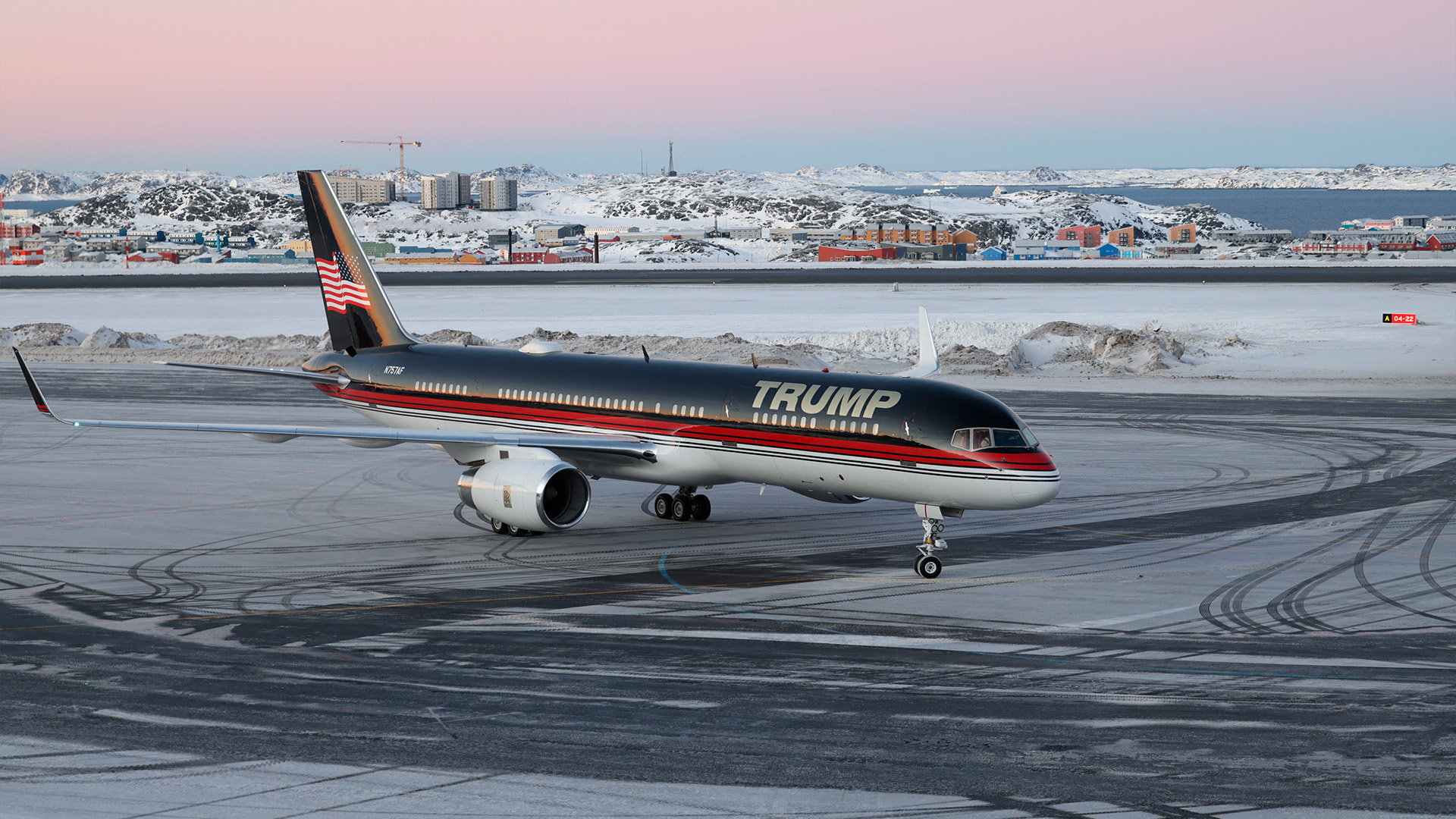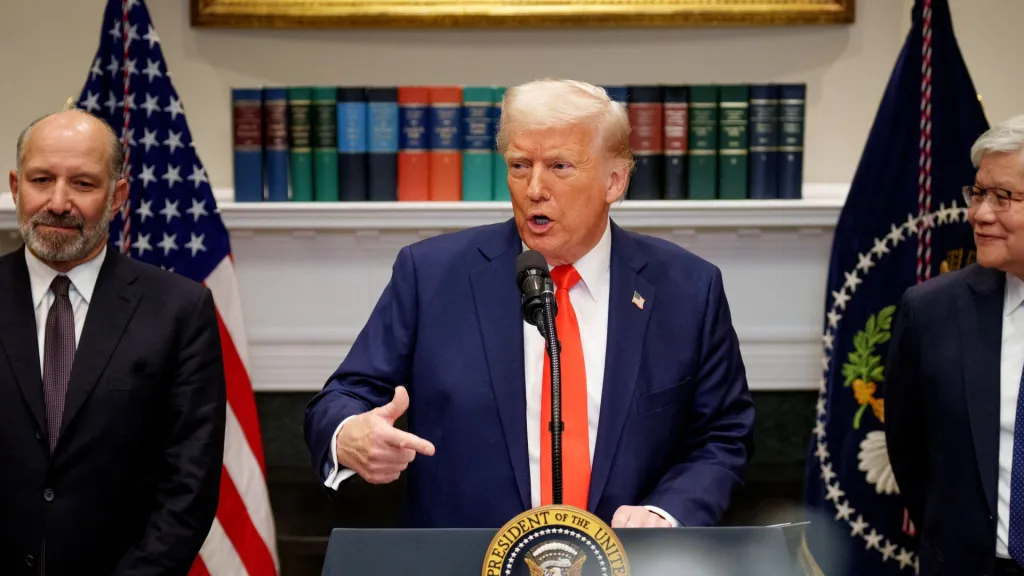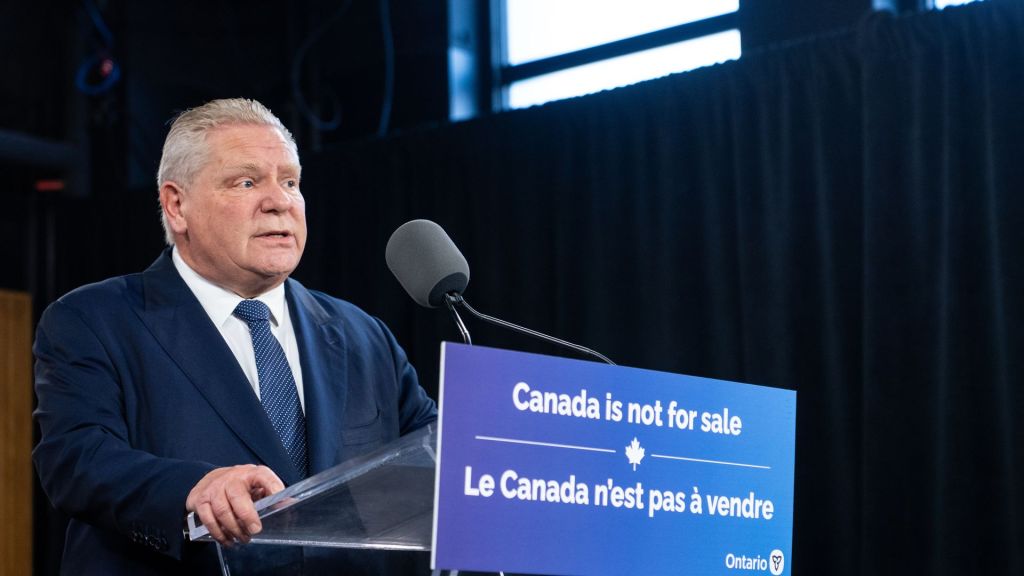
Peter Viggo Jakobsen: We’re sitting in Denmark and thinking, what’s he talking about? He already has military control.
Simone Del Rosario: President-elect Donald Trump is threatening military and economic force against Denmark to gain control of Greenland.
Donald Trump: We need it for national security. That’s for the free world. I’m talking about protecting the free world.
Simone Del Rosario: But his threats…
Donald Trump: I would tariff Denmark at a very high level.
Simone Del Rosario: …are stunning the close U.S. ally. Since WWII, the U.S. has maintained a military presence in Greenland while the world’s largest island remains part of the Denmark kingdom.
Peter Viggo Jakobsen: When Trump talks about military control of Greenland, then he probably missed a history lesson or two because the US already has military control of Greenland. My name is Peter Viggo Jakobsen. I’m a lecturer at Royal Danish Defence Academy and I’m working on international relations, user force coercion, Danish foreign and security and also Denmark’s relationship with the US, its NATO partners, so on and so forth. I’ve been looking at the Arctic for quite a while, but I’ve also been dealing with US-Danish relations for the past 20 years.
Simone Del Rosario: While the U.S. and, even specifically, Trump, have tried to acquire Greenland in the past, Danish authorities are understanding Trump is serious this time. It’s left Denmark “holding their breath” until Trump takes office to see what happens next.
Peter Viggo Jakobsen: The Danish reaction to the latest statement from Trump that he would not rule out using force or economic coercion in dealings with Greenland is basically to say, hey, the US is our best and closest ally. usually discuss issues and we don’t see any crisis and then let’s see what’s going on. So of course, Internally, the Ministry of Foreign Affairs and the Diplomatic Corps, there’s been some sort of, hey, what’s going on? This is very unusual. How come Trump addresses allies like this? But externally, it’s basically treated as, yes, we’ll deal with it if an issue arises. So it’s been played down from the Danish perspective. And to be quite frank, it’s really unclear with Trump is on about, it’s very unclear what he aims to achieve, but making these seemingly off the cuff remarks. So until we know what the US is going to demand once Trump takes office, everybody is sort of holding their breath and waiting.
Simone Del Rosario: What makes Greenland so strategically important for either side?
Peter Viggo Jakobsen: From Denmark, from a Danish perspective, I would say is primarily identity. It’s about being this United Kingdom and Greenland has been part of the Danish kingdom for a very long time. So having to give that up would be seen as a sort of a defeat. Greenland currently has home rule. There’s a growing aspiration for independence. But the problem is in Greenland that they can’t afford to run their own state and they’re getting huge subsidies every year from the Danish state. So on the one hand you have the Greenlanders wanting to decide everything themselves, but they still want Denmark to pay for it. And of course it doesn’t quite work that well. If can’t pay your own bills, the people who are paying your bills would also want some say in what’s going on. But from a strategic perspective, I would say that if you ask in the Ministry of Foreign Affairs, They say, it’s very important to have Greenland because then you get special access to the United States. You mean something special to them. We can offer the United States something they want and we have these meetings in the Arctic Council and so on. But if we cut to the chase, I would say that it’s not really that important from the Danish perspective. And even if we were to…If Greenland were to go independent, I really don’t see that as a major strategic loss from the Danish perspective. Denmark would still be a valuable ally for the US because we also control the straits that give you access to the Baltic Sea. So in that sense, I don’t really think it’s that important from the Danish perspective. You’d probably find a lot of Danes and certainly politicians who would disagree with it. But from a sort of strategic, rational perspective, Greenland is not that important. But from the US it’s a different story. And that’s because if you get into a military confrontation with Russia and Russia decides to fire a nuclear missile from Russia towards the United States, then the shortest route for a missile is crossing over Greenland. And that is of course why the United States back during the Cold War established the Tule Air Base where they have this warning radar that will enable the US to get a warning if Russia should decide to fire missiles against the United States. So it’s a vital part of the warning chain that the US established during the Cold War to keep the American homeland safe. So for that reason, it has become increasingly important as the relationship between the United States and Russia has deteriorated after the Russian decision to take Crimea and start the war on Ukraine in 2014.
Simone Del Rosario: How long has Greenland been under Denmark’s control?
Peter Viggo Jakobsen: I would say almost since time immemorial. mean, think we began to have, I mean, we had settlers going back to the Viking age and then there’s probably a debate as to whether they emanated from Norway or Denmark or wherever they came from. But then I think from the 1700 something, we started to have trade going up there. And so we have basically been having settlers been there for some hundred years.
Simone Del Rosario: And how many times has the United States and for how long tried to purchase, acquire, and in other ways get Greenland into its hands?
Peter Viggo Jakobsen: Well, the first time the discussion started in the US was about the time when the US was also buying Alaska from Russia. Then there was also an American senator, if I remember correctly, who proposed that the US should also buy Greenland. The issue, I think, surfaced again at the time when Denmark sold the West Indies to the US at about the start of the last century. And then the issue popped up again after World War II. As you are probably aware, the US, after making arrangements with a Danish diplomat, the Danish ambassador to the US, he allowed the US to basically take control of Greenland during World War II. And then after World War II, the Danish government politely thanked the US for looking after Greenland during World War II, and then they asked the US to leave again. And then the US basically told Denmark, it’s not quite going to work this way, guys. You either sell us Greenland or you give us the military bases we want. And then we made a base agreement with the United States in 1951. And this is the agreement that is still in operation. It was amended in 2004. And what that agreement basically says is that the US can do whatever it wants in the base it has in Tule or the Petrofique space base as it’s now called today. If the US wants additional military bases or additional military presence on Greenland, the US has to consult and inform Copenhagen and Nuuk. So basically the US can put more military power or personnel into Greenland if it wants to. It only has to tell the Danish government and the government in Greenland that now it’s going to put more forces in. We cannot do anything to prevent it. So when Trump talks about military control of Greenland, then he probably missed a history lesson or two because the US already has military control of Greenland.
Simone Del Rosario: What do the Danish think about his, you know, off-the-cuff comment about tariffs, about making this an economically painful situation for Denmark if they don’t agree to give up Greenland?
Peter Viggo Jakobsen: We’re sitting in Denmark and think what’s he talking about? He already has military control and if he wants more military control all he has to do is tell us that he wants more military control and then if he goes about it in a clever way we’ll probably also pay for the facilities that the US so desires. We’re currently building a new airstrip in Kangalusuaq and we’re doing that in order to please the Americans. So in a we are building an airstrip that the US military wants. At the moment, he only has to pick up the phone and say, hey, I would like another installation here. Could you please fix it? And that may also be what he has in mind, but we have no clue. The other thing about economic sanctions, that that’s a bit, again, it’s a bit, it’s a bit hard to understand why he wants to do this, because if he wants control over Greenland, that’s a decision for the Greenlanders to make and how that would work in the real world would be that Denmark currently subsidizes the running of the Greenlandic state. If we stop paying, their whole society collapses. So what Trump could do if he wants to take over Greenland is basically to buy Denmark out and make the government a nuke and an offer saying, hey, we’re going to pay as much as the Danes are paying or even a bit more. And then Greenland can take the political decision to declare themselves independent and then let the US take over the running of their state. So in that sense, if Trump does not get his way and he imposes sanctions on Denmark, he’s hitting at the wrong people because it’s not the Danish government’s decision to make. It’s for the Greenlanders to decide. And it’s a bit tough for the Americans to impose tariffs on Greenland because last time I checked, Greenland wasn’t really exporting anything of any importance to the US. So in that sense, his threat does not make any sense.
Simone Del Rosario: Aside from the military aspect of this, does Greenland have any natural resources that the U.S. would be interested in?
Peter Viggo Jakobsen: They do have some deposits of rare earth minerals, also have uranium and they also have some oil and gas. But the interesting thing is that whenever we have had commercial firms up there looking at this, they have decided that it’s not worth their while because it’s not profitable. But of course there are some deposits of rare earth minerals that you could argue would be in the interest of the US to get assessed to because China is at the moment controlling most of the rare earth minerals. So if the US government would want to subsidize such a production, then that might be worthwhile. But so far, the mining companies that have been up there have not really been able to start profitable operations. So it’s not my area of expertise, but it may sound greater than it actually is.
Simone Del Rosario: When all is said and done, do you think that Greenland will remain under Copenhagen’s control?
Peter Viggo Jakobsen: That depends on whether the US is going to offer them a better deal. Because if that does not happen, the Greenlanders don’t have any choice. They can choose between being subsidized by Denmark or being subsidized by the United States because they cannot generate enough revenue of their own, either from mining or fishing or tourism, to basically pay for the subsidies that they are currently receiving from Copenhagen. So the only way that they can get declare independence or change control is if they can find another sponsor. if that’s what Trump is trying to achieve, it seems weird to talk about coercion and sanctions because what he should be doing is basically bribing the Greenlanders to move from Danish control to American control.
Simone Del Rosario: Professor, thank you so much for your thoughts today.
Peter Viggo Jakobsen: Sure, no problem.











